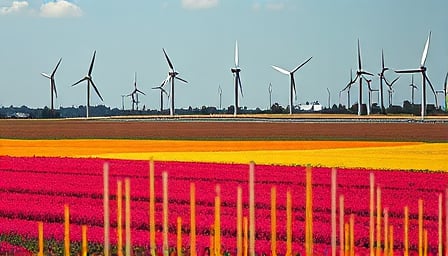Renewable Energy Sector Takes a Hit as Orsted’s Stock Price Declines
Orsted’s stock price has taken a significant hit in recent weeks, a direct result of the ongoing turmoil in global markets. The conflict brewing in the Middle East has cast a shadow over European markets, with Orsted’s shares feeling the brunt of this uncertainty. Furthermore, a proposed US Senate bill aimed at reducing tax incentives for wind and solar energy has added to the company’s woes, sending shockwaves throughout the renewable energy sector.
- Key drivers of Orsted’s stock price decline:
- Ongoing Middle East conflict
- Proposed US Senate bill reducing tax incentives for wind and solar energy
- Negative impact on the renewable energy sector as a whole
Despite these challenges, Orsted remains committed to its growth strategy, with a focus on increasing investments in key markets such as Taiwan and South Korea. The company sees significant opportunities for expansion in these regions, and is poised to capitalize on the growing demand for renewable energy.
- Orsted’s growth strategy:
- Increasing investments in Taiwan and South Korea
- Capitalizing on growing demand for renewable energy in key markets
- Diversifying its portfolio to mitigate risks and maximize returns
As the global energy landscape continues to evolve, Orsted’s commitment to renewable energy remains unwavering. While the company’s stock price may have taken a hit in recent weeks, its long-term prospects remain strong, driven by its focus on innovation, sustainability, and growth.
